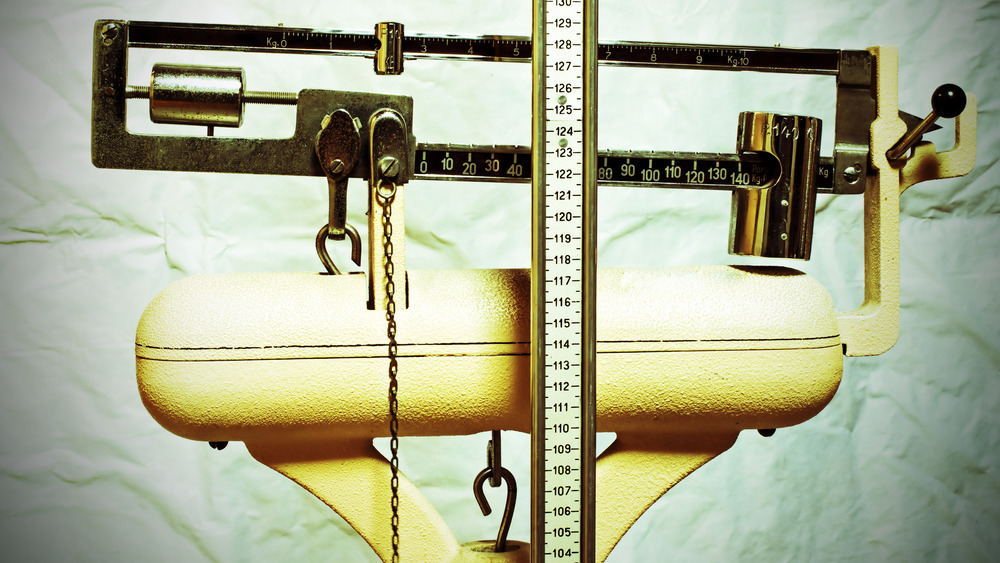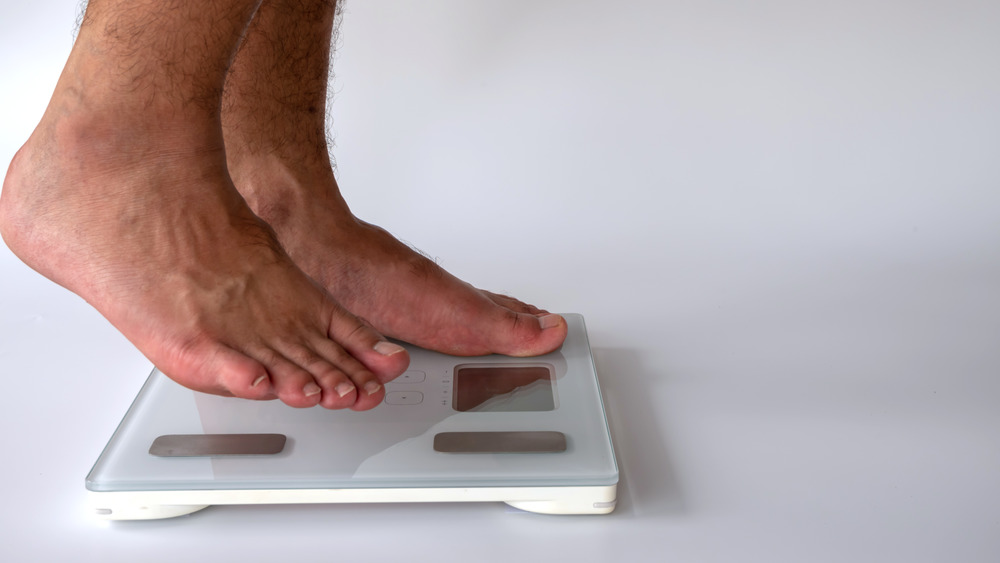BMR Vs TDEE: What's The Difference?
If you've ever tried to find out how many calories your body burns in a day — not through exercise, just over the normal course of your daily living — you've likely used some type of online calculator. The two most commonly used options are the Basal Metabolic Rate (BMR) and the Total Daily Energy Expenditure (TDEE) calculators, and there's one major difference between the two.
Basal metabolic rate (BMR) — often used interchangeably with resting metabolic rate (RMR) — technically only accounts for the amount of calories you burn in the day as a sedentary person, using the Harris and Benedict equation. Rather than doing the entire formula on your own, you can use an online calculator like the one found at Omnicalculator.com to plug in your height, weight, age, and gender to find out how many calories you burn each day at rest. Of course, this calculation is an inexact measurement, since it doesn't take into account your genetics, your body composition, or of course, your activity levels, but it's a good starting point. If you really want an exact number of calories burned, you'll need to find a test facility that measures BMR (via ACE).
What is daily energy expenditure?
On the other hand, Total Daily Energy Expenditure, or TDEE, takes into account the work that you've done throughout the day and applies it to the BMR calculation. This is a better way to gauge how many calories you need to eat in order to lose weight, stay at the same weight, or even to gain weight. The TDEE Calculator asks the same information as the BMR one — height, weight, gender, and age — but adds a question about your activity level, ranging from sedentary to light exercise to regular exercise to athlete. The activity level then multiplies your BMR by a certain percentage in order to account for your daily activities that burn calories.
For example, a 35-year-old man who weighs 150 pounds who is sedentary would only need 1,927 calories to maintain his current weight, but if that man was doing heavy amounts of activity, he would need 2,770 calories to maintain his current weight.
Checking your BMR and not taking into account your activity can be a problem, especially if you have a job that involves a lot of movement, or you're training hard most days at the gym, since you may need more calories in your diet. And again, remember that these are just rough calculations, not hard and fast rules (via Healthline).


